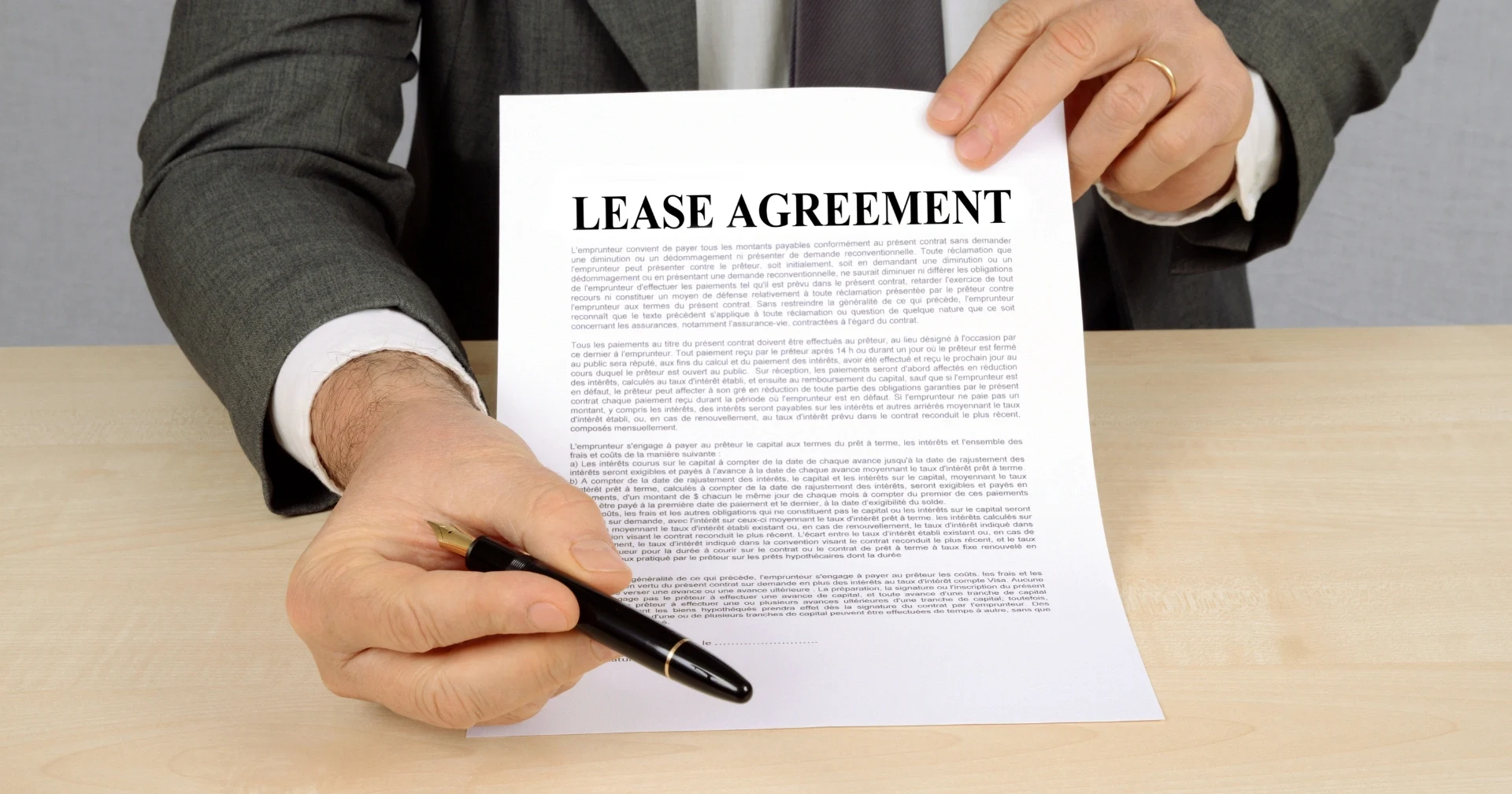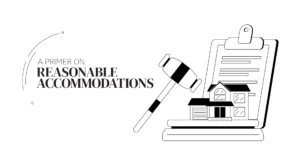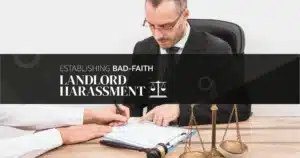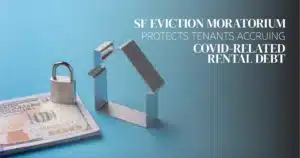You signed a lease. It felt like the right decision. The location worked. The price seemed fair. But things changed.
Maybe your job moved. Maybe your health got worse. Maybe your unit has mold or pests. Or maybe your landlord walked in without warning.
You try to leave early. The landlord says no. They demand more rent. They keep your deposit. You feel stuck.
Can you leave without paying a penalty? What happens if the place feels unsafe? Can you break your lease if your landlord breaks the rules?
California law gives tenants clear rights. But many renters don’t know how to use them. Some give up and keep paying. Others leave and get sued.
You can leave the right way. You can take steps the law supports. You can protect your money and your peace of mind.
Start by knowing what the law says. Then act clearly, with proof and notice. The courts have ruled on many cases like yours. Their decisions show what works and what doesn’t.
When Health Hazards Make Your Home Unlivable
When the Unit Becomes Unsafe to Live In
Mold covers your ceiling. The bathroom leaks constantly. Roaches crawl out from the stove. You tell the landlord. Nothing changes. The air feels hard to breathe. Your health suffers.
In these cases, you may ask how to terminate a lease without penalty. You don’t have to live in conditions that hurt your health. But you need to act carefully.
Start by reporting the issues in writing. Take pictures. Request repairs with a deadline. If they do nothing, you can move out legally.
What California Courts and Laws Say About Unsafe Rentals
In a 2025 Santa Barbara County case (No. 24CV06257), the court found tenants faced serious habitability violations. The property had persistent water leaks, mold, cockroach infestation, and lead contamination. The landlord ignored repair requests and worsened the conditions. The judge ruled in favor of the tenants. The court allowed lease termination without penalty under Civil Code §1942.4, banning rent when housing is unsafe.
If your landlord refuses to correct urgent health hazards, California courts may support your legal exit from the lease.
Poor Communication Can Cost You
When Your Written Notice Lacks Clear Intent and Details
You text your landlord: “I might move out soon.” They never reply. Weeks later, they charge you two more months of rent. You realize your message didn’t count.
A vague message isn’t enough. You must explain exactly what you plan to do. Include the move-out date, your reason, and give formal notice.
What HUD and California Require in a Valid Termination Notice
Under 24 CFR §247.4, your notice must state the reason and termination date. California courts and housing agencies require a formal written notice—not a text or casual email—as valid termination. For example, legal commentary and court guidance confirm that a simple text message (e.g., “I might leave in June”) fails notice requirements and can invalidate your intent to move.
A clear, detailed, written notice protects your right to break the lease legally.
How to Terminate Lease Under SCRA Without Penalty – Military Orders
When Active-Duty Orders Require You to Leave Early
You’re called to report for military duty. Your lease still has six months left. You’re not sure what your rights are. You ask how to terminate a lease without penalty under the law.
The Servicemembers Civil Relief Act helps active-duty members break leases. But you must give notice and include a copy of your orders.
What Federal Law and Authorities Say About SCRA Termination
Under 50 U.S.C. App. § 3955, military renters may end leases without penalty after receiving qualifying orders. In June 2023, the DOJ forced FPI Management Inc., a California property manager, to pay about $74,000 in redress and penalties after it charged nine servicemembers illegal fees for early lease termination under SCRA.
If you’re serving the country, you don’t have to keep paying for an apartment you can’t use.
When the Landlord Becomes the Problem
When the Landlord Enters Without Notice or Harasses You
Your landlord opens your door while you’re in the shower. They walk in without permission. They question who visits. You start feeling anxious.
You want to leave, but fear a penalty. California law protects your privacy. Repeated intrusions can void your lease. Document the visits. Send written objections.
What California Law Says About Privacy and Habitability
California Civil Code §1954 requires landlords to provide at least 24 hours’ written notice before entry (except emergencies). Courts regard repeated unannounced entries as violations of tenant privacy and quiet enjoyment. Tenants can protect themselves by documenting entries, sending written warnings, and, if needed, ending their lease legally.
Protection for Victims of Abuse
When Safety Requires You to Leave Immediately
A partner hits you. You get a restraining order. But your lease has months left. You ask how to break a lease without penalty legally and fast.
California law gives you that right. It requires proper notice and proof. But it protects your safety first.
What the California Civil Code Says About Early Exit for Survivors
California Civil Code §1946.7 gives domestic violence victims the right to leave early. You can end your lease with 14 days’ notice. You must include a police report or restraining order.
You don’t have to stay in danger just because of a lease.
When Life Changes Everything
When Life Changes Make It Impossible to Stay
Your income drops. Your job moves to another city. Your doctor tells you to rest. But rent stays the same.
You ask why terminate a lease without penalty during big life shifts. The lease may not list these reasons. But landlords sometimes agree if you show proof and offer help.
What California Courts and Leases Say About Financial Flexibility
California law doesn’t guarantee penalty-free lease exit for a job change. But tenant advocacy groups and legal firms confirm that landlords often cooperate through mediation or early termination agreements when tenants act in good faith.
LegalClarity’s 2025 analysis shows many landlords agree to waive fees in hardship cases if tenants help find qualified replacements or participate in dispute resolution.
Avoid Penalties Through Smart Planning
When You Find Someone to Take Over Your Lease
You have three months left on your lease. You want to go now. You find a friend who needs housing. Can you transfer the lease?
You ask how to get out of a lease without penalty by assigning or subleasing. California allows it, but you must follow the rules.
What California Law Says About Subleasing and Lease Transfers
Under California Civil Code §1995.260, a landlord can’t reject a qualified tenant without a good reason.
You can avoid fees if you find someone who qualifies and follow the proper steps.
When the Property Crosses the Line
When the Property Fails to Meet Basic Living Standards
Your heater breaks. The roof leaks. There’s exposed wiring in the hall. You report it. The landlord delays. You start asking how to terminate the lease without penalty.
If the unit fails habitability laws, and the landlord won’t act, you may leave. Just be sure to document everything and give written notice.
What California Law Requires Landlords to Fix
California Civil Code §1941.1 requires at least a 24-hour written notice before landlord entry (except emergencies). Courts have supported tenants who document repeated unauthorized entries and treat them as lease violations under tenant privacy rights. Legal commentary identifies such violations as grounds for constructive eviction, often allowing tenants to leave without paying penalties.
You Don’t Have to Stay Trapped in a Bad Lease
Many tenants feel stuck. The lease says one thing. Life says another. Mold spreads. Safety fails. Orders arrive. Jobs change. But still, landlords expect full rent and penalties.
California law gives you real ways out. If your unit is unsafe, your landlord harasses you, or you face military orders or abuse, you have legal protections. You just have to follow the right steps, give proper notice, and stand firm. We’ve walked through legal reasons that answer how to terminate a lease without penalty. You now know where California stands—and where you stand.
That’s where we come in.
At The Law Firm for Tenant Rights, Inc., we fight for renters—only renters. We know every lease clause, court ruling, and loophole landlords try to use. We help you leave, stay safe, and protect your money. We don’t speak in legal riddles—we explain your rights clearly, step by step.
Need help breaking your lease without getting punished? Call us today. We’re ready
Frequently Asked Questions
- How to terminate a lease without penalty in California?
You must meet legal reasons like uninhabitable conditions, military orders, or harassment. Provide written notice and proof to avoid fees. - How to terminate the lease early without penalty if I lose my job?
Job loss isn’t a guaranteed reason, but some landlords may work with you. Offer notice and a qualified new tenant if possible. - How to end lease early without penalty due to safety concerns?
If you face domestic violence or illegal landlord behavior, you may leave early. Provide police reports, court orders, or written evidence. - Why terminate the lease without penalty instead of breaking it informally?
Doing it legally protects your credit, avoids lawsuits, and saves you money. Breaking it the wrong way can lead to collections. - How to get out of a lease without penalty when the unit is unlivable?
You can end the lease if your landlord won’t fix major issues. Take photos, report it, and send a written notice. - How to break a lease without penalty legally under the SCRA?
If you’re in active duty military and receive qualifying orders, you’re protected. Provide your orders and give notice under the SCRA rules. - Why ending the lease early may avoid penalties with proper documentation?
California law supports tenants who follow correct legal steps. Courts often side with renters who act in good faith. - How to exit the lease early without penalty using subleasing?
You may sublease if your lease allows it or if the landlord agrees. Find a reliable tenant and get everything in writing. - How to terminate a lease due to uninhabitable conditions legally?
You must notify the landlord and give them a chance to fix things. If they refuse, you may lawfully end the lease. - Why do landlords sometimes allow early lease termination without penalty?
If you’re cooperative, honest, and help find a new tenant, many landlords agree. It saves them time and avoids court.





